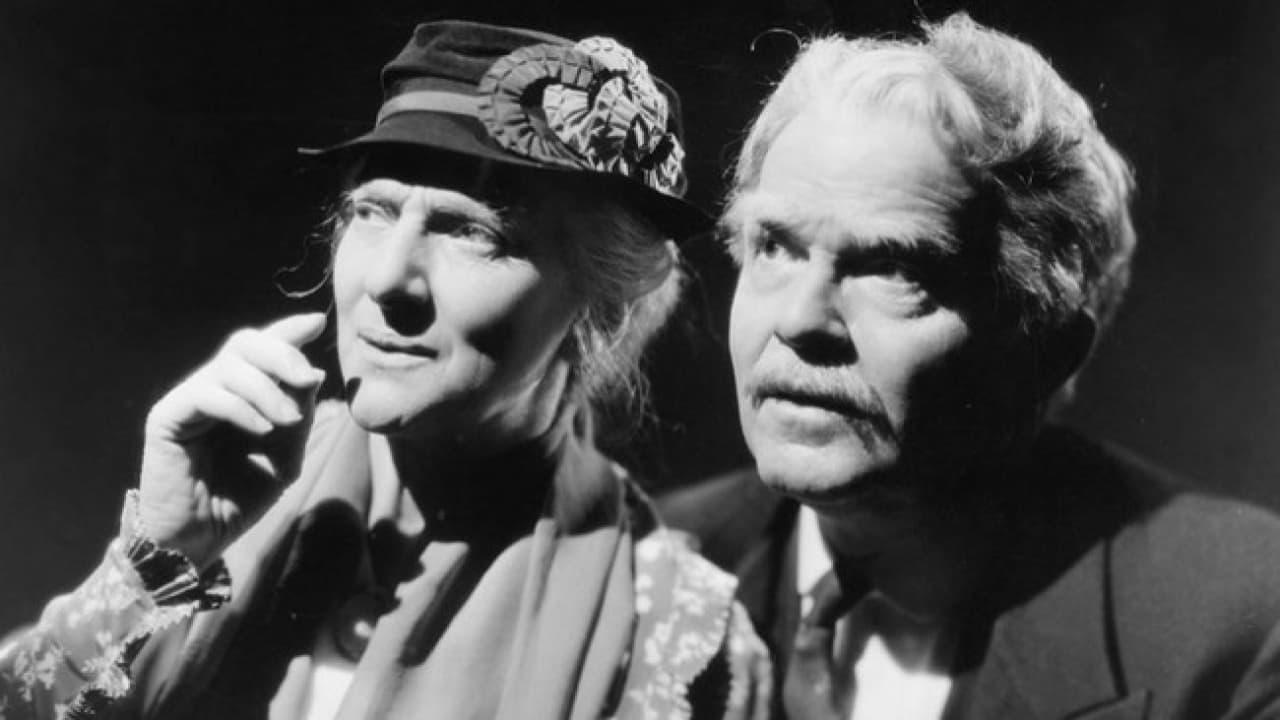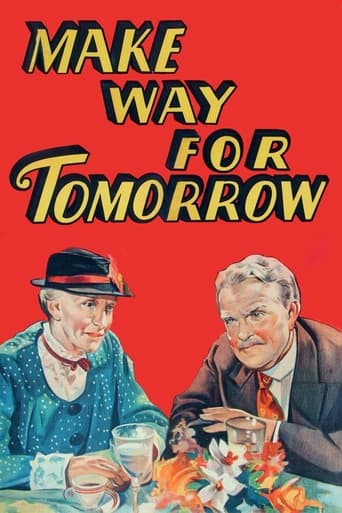



Excellent, smart action film.
In other words,this film is a surreal ride.
The joyful confection is coated in a sparkly gloss, bright enough to gleam from the darkest, most cynical corners.
View MoreA terrific literary drama and character piece that shows how the process of creating art can be seen differently by those doing it and those looking at it from the outside.
View MoreI'd done some homework prior to seeing what many consider Leo McCary's best film (himself included) and have to say I was rather disappointed. Yes, the story is timeless and for audiences seeing 50 years in the future it will still be relevant. I don't think that in itself is a mark of quality. As for the performances I feel as though Bondi is trying a bit too hard here and it feels a bit contrived to me. It wasn't as though I didn't feel anything towards the films conclusion, its just that I kind of feel it wasn't earned.
View MoreThis black and white film is one I found listed in the book 1001 Movies You Must See Before You Die, it had good ratings and was obviously included in this reference, I hoped for something good, directed by Loe McCarey (Duck Soup, The Awful Truth, An Affair to Remember). Basically elderly couple Barkley "Bark" (Victor Moore) and Lucy Cooper (Beulah Bondi) lose their home after the bank forecloses on the mortgage, they now need a place to live, and they turn to their five adult children. However none of the children will take both them in and they are forced to live separately, this arrangement was supposed to be temporary for three months or until something more permanent can be arranged by the children. Lucy, aka "Ma", goes to live with her son George (Thomas Mitchell), but she always seems to in the way of him and especially his wife Anita Cooper (Fay Bainter) when she is trying to teach her bridge class. Barkley, aka "Pa", goes to live with his daughter Cora Payne (Elisabeth Risdon), but she obviously resents his very presence and arranges for him to go and live with another of his children in California. While all this is going on Lucy and Barkley do their best to maintain their dignity, in the end the couple are parted when Barkley leaves to find a job in California, he says he will send for Lucy, each make a heartfelt statement and reaffirm their lifelong love, but it seems this is almost certainly their final moment together as the train departs. Also starring Porter Hall as Harvey Chase, Barbara Read as Rhoda Cooper and Maurice Moscovitch as Max Rubens. The leading stars as the old and retired married couple who are chucked out their home and slowly broken up are likable, you believe their affection for each other with dances together and stuff, I have to admit I did find myself laughing all that much, there is supposed to be lightness with the sad stuff going on, it is certainly more tearjerking than funny, but that's not a bad thing, I didn't fully get into perhaps, but it is a worthwhile enough comedy drama. Good!
View Morebefore blue collar workers had health insurance, retirement benefits or social security. The story seems so realistic many of us raised in these families consider it recognizable within our own lives although the paid performers are acting out a theater piece. Mom and dad, Beulah Bondi and Victor Moore, are evicted from their lifetime home as septuagenarians to come to grips with no place to live as a loving couple and not comfortable separating. Daughter in law Fay Bainter takes in mom to then be disappointed when her own family's tenuous lifestyle is interrupted to the point her family could years down the road end up like her in laws and reacts badly.She palms off mom on a granddaughter far away and likely to forever be separated from dad. Another daughter in law afraid her tenuous family setup will downgrade her family's chances of staying together in old age She physically abuses dad by breaking his eyeglasses so he cannot read mom's letters then running dad barefoot up and down stairs until the septuagenarian becomes ill She then trying to convince a physician to certify him as not able to live in the community. Dad is committed to a nursing home. Mom and dad realize these separations will break them apart forever and be heartrending yet can be tolerated if they snub and insult their children and in laws on their last day to disappear for a proper, loving goodbye before losing each other without grumbling. More heartrending should you have lived in a family going through this in this era of the past.
View More"Make Way for Tomorrow," Leo McCarey's quiet tragedy about an elderly couple who are left with few choices when their adult children are reluctant to take care of them, is one of those films that grows in stature the more you think about it.On one hand, it's a bit heavy handed and simplistic in the way 1930s films frequently were and which makes them seem dated now -- the parents are a bit too saintly, the children a bit too awful. As a study of characters, the film would have been more interesting if it had provided some insight into why the children turned out the way they did and what role the parents played in shaping them into the selfish adults they become. The children would have been more interesting if they had been portrayed more humanely; Thomas Mitchell, as the oldest son, is the only one who comes across as something other than a selfish horror.But the film is more interested in examining a social topic than it is in exploring characters, and in that way it feels ahead of its time, even if its sophistication doesn't fully sink in until after you've had some time to think about the movie. For a 1937 film, it's extremely unsentimental when it might have been downright maudlin. The parents move about with a resigned air, and the film doesn't pander for sympathy. As one of the extra features on the DVD points out, audiences aren't interested in movies about old people even now, let alone then. And we haven't gotten much better at the way we view and treat the elderly in the 70+ years since "Make Way for Tomorrow" debuted. One of the things I liked best about the movie -- and that makes it still incredibly relevant -- is that it shows how dismissive younger generations are about older people, and how children seem to think their parents don't have lives outside of them. As portrayed brilliantly by Beulah Bondi and Victor Moore in the film, these two doddery folk have a rich history together; they had a life before children and they have a life after; they have things to teach, wisdom to impart, and they're very sharp and astute about what's going on around them. One of the biggest tragedies in the film is something that goes almost unspoken, and that's the disappointment they feel in their children but won't let their children see.The final sequence of the movie is downright magical, when Bondi and Moore blow off their children to revisit the haunts of their honeymoon. It's funny, sad and almost unbearably poignant without being schmaltzy, thanks partly to the low-key direction of Leo McCarey but mostly to the wonderful performances of the two actors.A lovely film.Grade: A
View More